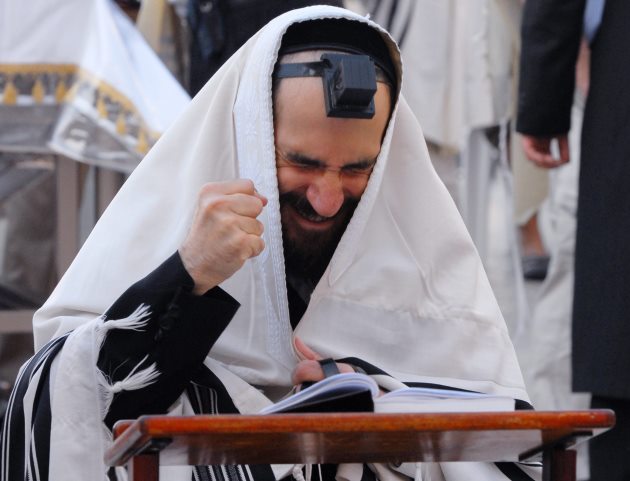
Before reciting the Viduy — the confessional prayer — on Yom Kippur, we say a special supplication, ‘אַתָּה יוֹדֵעַ רָזֵי עוֹלָם':
“You know the mysteries of the universe and the hidden secrets of every living soul. You search the innermost chambers of the conscience and the heart. Nothing escapes You; nothing is hidden from Your sight. Therefore, may it be Your Will to forgive all our sins.”
Why do we begin Viduy with an acknowledgment of God’s infinite knowledge? What does His knowledge of the mysteries of the universe have to do with our efforts to repent and atone for our deeds?
Three Components of Teshuvah
There are three components to the teshuvah process, corresponding to the past, the present, and the future. Teshuvah should include:
Yet, as we shall see, a full performance of these three elements requires profound knowledge. In fact, teshuvah sheleimah, complete repentance, calls for a depth of knowledge far beyond our finite grasp.
Regret for the Past
True remorse depends on understanding the gravity of our actions. The Kabbalists taught that our actions reverberate through the highest spiritual realms. The more deeply we appreciate the damage caused by our wrongdoings, the more profoundly we feel regret.
This is why the request for forgiveness in the daily Amidah comes only after the request for knowledge. And certainly, the One who best knows the weight and consequence of our actions is the Creator of the universe and its spiritual worlds.
Uprooting the Behavior
The same is true regarding the second component of Teshuvah. To fully free ourselves from a particular harmful behavior or trait, it is not enough to desist from its outward expression. We need to remove all desire for this conduct; we need to dislodge its roots from the inner recesses of the soul.
Yet who truly knows their innermost self? We may believe we have overcome a vice, but it may still lie dormant, waiting to resurface. Only the One who fashioned the human heart knows whether we have truly cleansed it.
Resolve for the Future
The third component, our resolve to refrain from repeating this behavior in the future, means to pledge steadfastness under every circumstance, even the most trying. Again, such resolve assumes knowledge of all future trials and temptations, knowledge that belongs to God alone.
Complete Teshuvah
How then can we aspire to true Teshuvah, when its essential components require knowledge that we do not possess?
The Torah assures us that the mitzvah of Teshuvah lies within our grasp: “It is not too difficult or distant from you.... Rather, this matter is very close to you, in your mouth and in your heart, so that you can fulfill it” (Deut. 30:11-14). God graciously accepts the little we are able to achieve as if it were much.
Thus we pray that our limited capacity for regret, change, and resolve for the future may be joined to God’s infinite knowledge. For were we able to perceive reality in its true measure, we would feel it with all its weight in our efforts to better ourselves.
The Prayer’s Meaning
This is the intent of the Yom Kippur prayer:
Nonetheless, since we can fulfill the components of Teshuvah only within the limits of our ability, we plead: “May it be Your will to forgive all our sins.” Then we may reach the level of “complete repentance before You” — a Teshuvah made whole when our sincere efforts are joined with God’s infinite knowledge.
(Silver from the Land of Israel. Adapted from Olat Re’iyah vol. II, p. 353)





